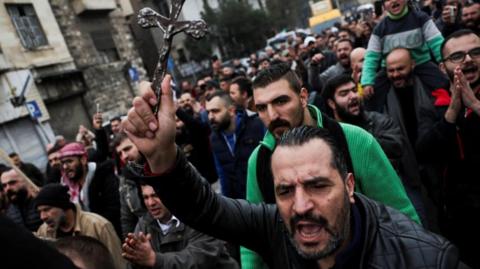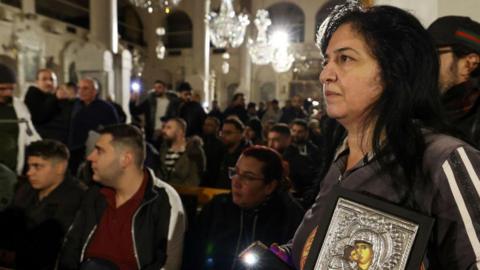Syria is home to many ethnic and religious groups, including Kurds, Armenians, Assyrians, Christians, Druze, Alawite Shia and Arab Sunnis, the last of whom make up a majority of the Muslim population.
Just over two weeks ago, Bashar al-Assad's presidency fell to rebel forces, ending the Assad family's more than 50-year-rule.
How the HTS group will govern Syria remains to be seen.
HTS began as a jihadist group - espousing violence to achieve its goal of establishing a state governed by Islamic law (Sharia) - but in recent years adopted a more pragmatic, less uncompromising approach.
As fighters marched to Damascus earlier this month, its leaders spoke about building a Syria for all Syrians.
On Tuesday the new authorities announced that leader Ahmed al-Sharaa had reached an agreement with "revolutionary factions... to dissolve all factions and merge them under the umbrella of the Ministry of Defence", according to Sana news agency.
Prime Minister Mohammed al-Bashir said the ministry would be restructured to include rebel fighters.
Although the statement mentioned "all factions", it was not clear exactly which groups are included in the merger.
There are multiple armed groups in Syria, including some opposed to HTS and others with ambiguous relationships with it at best.

